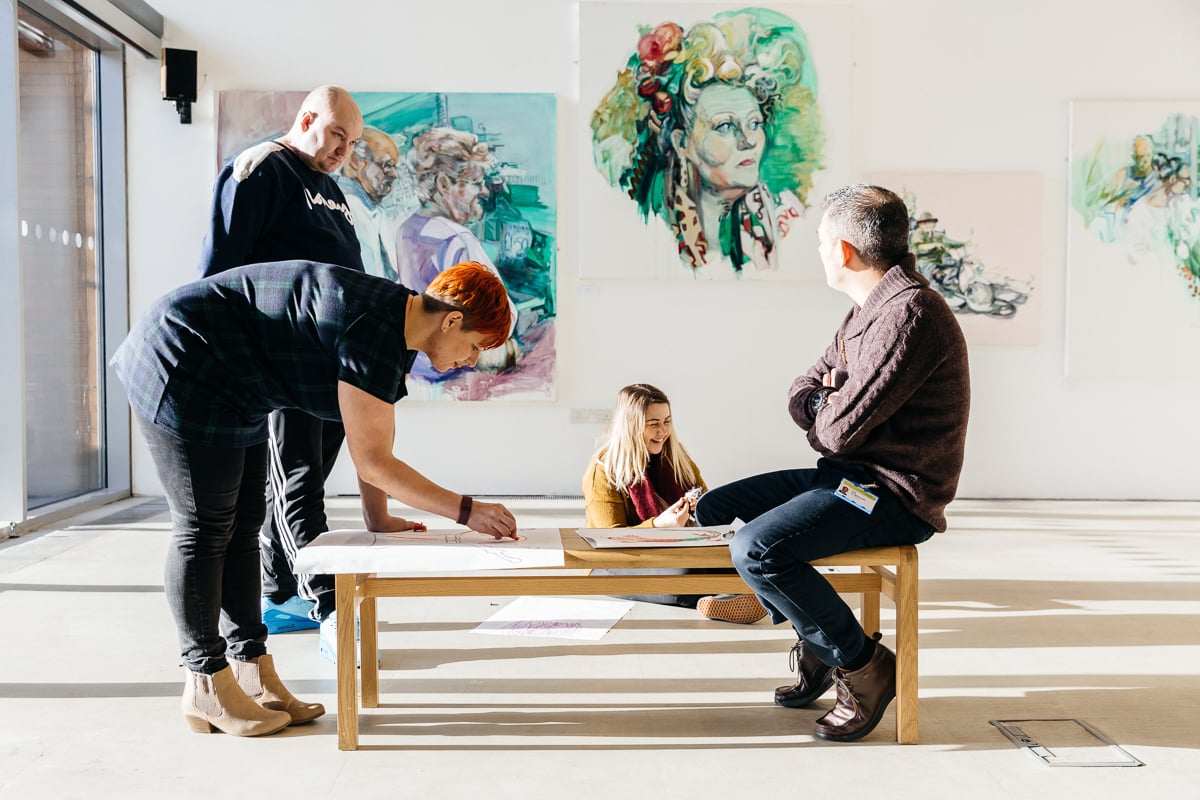
Achieving a productivity and mission boost
The growth of the cultural and creative industries may be strong, but there are still questions regarding productivity and performance among smaller organisations. Nick Henry is optimistic that things will soon change.
The growth of the cultural and creative industries is a success story. In its recent response to the Government’s Green Paper on Industrial Strategy, the Creative Industries Council detailed how the sector generates around £90bn per annum – over 5% of the UK’s economy. It directly employs almost two million people and has a growth rate that has consistently outperformed the economy as a whole for over a decade.
These business support programmes may place the cultural and creative industries at the leading edge of economic development policy
However, it is also a ‘long-tailed’ sector, in which around 60% of businesses are sole traders and 90% employ no more than five people. As reported in last year’s Mayfield Commission Report ‘How good is your business really?’, the UK’s productivity gap could be substantially reduced if the long tail of our small and medium-sized businesses simply shifted to perform as well as the businesses 10% above them in the productivity stakes.
There are well-known barriers why businesses won’t take such action to improve productivity and performance without some fairly strong nudges. Overcoming such barriers to business performance is the driving force for business support programmes, whether generalist or specific to a sector, theme or business type.
Cultural missions under challenge
The economic contribution of the cultural and creative industries is acknowledged strongly in the 2016 DCMS Culture White Paper, alongside the sector’s geopolitical contribution of ‘soft power’. Nevertheless, the White Paper’s major message is ‘culture in action’, a statement of the intrinsic personal enrichment that culture brings and the broader cultural and social value for communities as culture touches lives every day.
Yet the White Paper has appeared at a moment when many would argue that delivering the mission of cultural and social contribution has never been at its most vulnerable. A moment when the grant-funded ecology, infrastructure and institutions of cultural and creative value face some of the toughest challenges in their history to survive, sustain and grow. The ‘why’ role of business support in this instance is to aid organisational development towards sustainability.
For many in the sector, the variegated balancing of the cultural and commercial defines the spectrum of activity and form that is the cultural and creative industries. A business or organisation sits on the spectrum, dependent on the vision and mission trade-off it chooses. Yet whatever its position, the Warwick Commission on the Future of Cultural Value in 2015 noted eloquently the interdependences and contributions that these individual parts make to the whole ecosystem and its dynamism.
Value of business support
Creative United’s Prosper programme is deliberately aimed at the full diversity of the cultural and creative industries. During the two-month application period to May this year, it attracted nearly 500 registrations and 260 completed applications across the full spectrum of activity in England.
The figures suggest a high level of awareness about the value of business support. They illustrate the potential unmet demand for business support that this strategic initiative is seeking to understand. A quick review of applications suggests a diversity of organisation and business participants, and a range of mission-orientated business models seeking varying balances and blends of sustainability and performance outcomes.
If replicated elsewhere, this diversity will be challenging for the projects that Arts Council England (ACE) is supporting, but probably fitting given their pilot nature. Pilot outcomes might be expected to suggest valuable directions on how business support projects map against and make an impact across the cultural and creative industries ecosystem, and the ensuing cultural, economic and social benefits to be gained.
Here at the Centre for Business in Society at Coventry University, using our partnership in the Prosper programme, we will seek to do the following:
- Develop an understanding of the current demand for and provision of sector-specific business support across the UK
- Identify impacts and lessons from Prosper
- Provide recommendations on policy and future investment to ACE.
Excitingly, thinking to the future by their very nature, these business support programmes may place the cultural and creative industries at the leading edge of economic development policy – by reflecting a growing interest around how ‘to do the economic’ through balanced, inclusive and sustainable approaches that truly support and deliver societal wellbeing.
Nick Henry is Co-Director of the Centre for Business in Society at Coventry University.
www.coventry.ac.uk/research/areas-of-research/business-in-society
www.creativeunited.org.uk/programme/prosper
Tw: #ProsperSupport
This article, contributed and sponsored by Creative United, is one of a series on making business support work for the arts and culture.
For details of the Prosper masterclasses, workshops and webinars across England click here.
Join the Discussion
You must be logged in to post a comment.